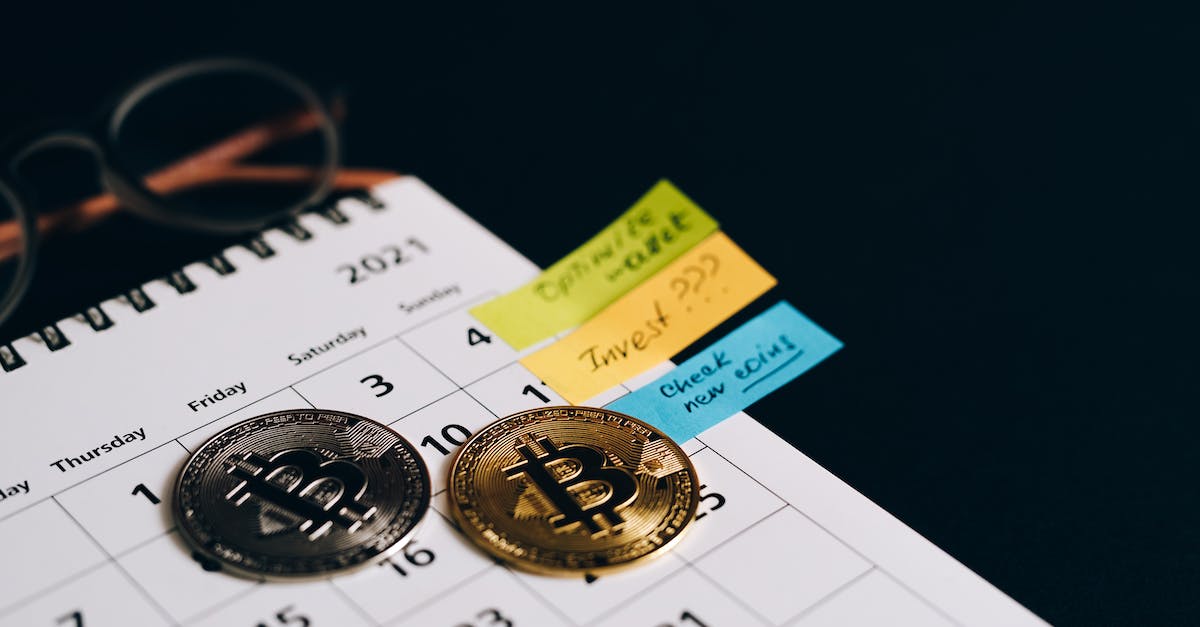As you dive into the world of online gambling, the allure of cryptocurrencies can be undeniable. They promise anonymity, speed, and a lack of centralized control. But have you considered the hidden dangers lurking behind unregulated crypto gambling sites? They’re not just a roll of the dice; they’re a whole new game with rules you might not fully understand.
In this article, we’ll explore the murky waters of unregulated crypto gambling. You’ll learn about the risks that could jeopardize not just your digital wallet but also your personal data. We’re talking about issues from lack of consumer protection to the potential for fraud and hacking. Let’s peel back the curtain to reveal what’s really at stake when you place your bets with cryptocurrency.
Table of Contents
ToggleLack of Regulation in Crypto Gambling Sites
Unregulated crypto gambling sites operate outside the boundaries of standardized gambling laws. This means they haven’t passed the necessary checks to ensure fairness, security, or responsible gaming practices that regulated sites must adhere to. You’re dealing with platforms where the rules are made up as they go along, often hidden behind a curtain of anonymity.
Traditional online casinos are usually licensed by regulatory bodies such as the Malta Gaming Authority or the UK Gambling Commission. These organizations enforce strict guidelines to protect you, including:
- Anti-money laundering (AML) procedures
- Know Your Customer (KYC) regulations
- Fairness of games
- Prompt payments of winnings
With unregulated sites, none of these safeguards is a given. There’s a heightened risk that the games could be rigged against you, without any independent body to turn to for audits or disputes.
The Vulnerability of Your Data and Funds
When you engage with unregulated platforms, you’re trusting that the site will protect and correctly handle your cryptocurrency and personal information. However, should a breach occur, there’s little recourse.
Hackers often target crypto gambling sites for their lax security measures, precisely because they are not answerable to regulatory standards. If your funds are stolen or your personal data is leaked, the lack of a regulatory framework makes it difficult to track down the perpetrators or regain your losses.
Financial Instability
Without regulations, these sites may not have the financial buffer mandatory for licensed casinos to cover significant wins or to stay afloat during volatile periods. They might also employ withdrawal limits or delay payments, leading to uncertainty around accessing your funds.
Engaging with an unregulated crypto gambling site is akin to walking a tightrope without a safety net. Before you take that risk, it’s paramount to weigh the potential consequences against the lure of quick crypto gains.
Consumer Protection Challenges
When you’re dealing with unregulated crypto gambling sites, the absence of consumer protection stands out sharply. Regulated sites typically offer a degree of recourse should issues arise. In stark contrast, with unregulated sites, you’re essentially left to fend for yourself. Disputes over payouts or game outcomes aren’t overseen by any regulatory bodies, which means there’s no established channel for complaint or redress.
- Recourse for Disputes
- Fund Security
- Data Protection
If your funds go missing or if you suspect fraud, there’s little to no oversight regarding fund security. Unlike traditional financial institutions regulated by government entities like the Federal Deposit Insurance Corporation (FDIC), unregulated gambling sites offer no such assurances. There’s no guarantee your deposits are safe or that you’ll be able to withdraw your winnings.
Another vital aspect is your personal data. Regulated gambling services are required to follow strict data protection laws that aim to keep your personal and financial information secure. Unregulated platforms might not invest in robust cybersecurity measures, leaving your sensitive data exposed to hackers and other malicious actors. Additionally, there’s often no clarity on how your data is being used, potentially leading to privacy concerns.
The use of cryptocurrencies magnifies these risks. Transactions on the blockchain may be irreversible, providing no way to recover funds in case of errors or fraud. The anonymity of crypto can also be a double-edged sword; it may protect your privacy but can also hinder the tracking down of scammers.
It’s essential to weigh the risks and understand that what might seem like a quick and easy way to gamble can have far-reaching implications for your financial and personal security. Always investigate the credibility and security measures of any crypto gambling site before committing your digital assets.
Potential for Fraud and Scams
When you’re navigating the murky waters of unregulated crypto gambling sites, it’s crucial to be wary of the increased possibility of fraud and scams. Without regulatory oversight, these platforms often become a breeding ground for dishonest practices. Fraudulent operators can set up a site with little to no intention of conducting fair gaming. You might find that the odds are heavily stacked against you or that the games themselves are rigged from the outset.
The anonymity afforded by cryptocurrencies also adds a layer of complexity. Scammers can hide behind blockchain technology, making it difficult to verify their identities or track them down. In such a setting, if you fall victim to a scam, finding recourse can be nearly impossible. Here are some common types of scams associated with unregulated crypto gambling sites:
- Ponzi and Pyramid Schemes: Operators may entice you with promises of high returns in exchange for recruiting others to join.
- Exit Scams: Suddenly, a site might disappear, taking all deposited funds with it.
- Phishing Scams: You could encounter fake websites or emails designed to steal your login credentials and access your funds.
Be extra careful with sites promising unusually high bonuses or returns which can be indicators of fraudulent intent. Transparency in their operations, the technology they use for fairness (such as Provably Fair algorithms), and their reputation within the community should be clear indicators of their legitimacy.
In the absence of regulation, it’s also worth noting the importance of doing your due diligence. Research the site’s history, read user reviews, and look for any reports of fraudulent activity. A lack of concrete and verifiable information about the site’s operators should raise a red flag.
Finally, remember transactions made with cryptocurrency are irreversible. Once you’ve made a deposit, you might not be able to get it back even if you realize the site is not trustworthy. Always approach unregulated crypto gambling sites with caution, and consider the risks before transferring any of your digital assets.
Risk of Hacking and Data Breaches
When you participate in unregulated crypto gambling, your personal and financial data is at constant risk. The lack of regulation means there’s no guarantee that these platforms implement stringent security measures. Cybercriminals view these sites as lucrative targets due to the anonymous nature of transactions and the substantial amounts of digital currency in play.
Breaches and hacks can occur in various forms. They may directly attack a site’s infrastructure, employ malware to steal user credentials, or use social engineering to gain access to sensitive accounts. Unregulated sites might not invest in comprehensive cybersecurity, leaving them vulnerable to skilled hackers.
If you’re considering unregulated crypto gambling, be aware of a few sobering statistics:
| Year | Number of Reported Breaches | Records Exposed |
|---|---|---|
| 2021 | 100+ | 500 million+ |
| 2022 | 150+ | 1 billion+ |
These numbers reflect a general trend in digital security breaches and demonstrate an escalating threat landscape. Unregulated crypto gambling sites, in particular, may contribute to a significant portion of these incidents due to their unsecured platforms.
Additionally, remember that the loss of digital assets through a hack can be irrecoverable. Unlike traditional banks, there’s typically no insurance or recourse to recover lost funds in the crypto sphere. Once your digital assets are stolen, they may be permanently lost.
The cybersecurity risks extend beyond immediate financial loss. They include the potential of identity theft, which can have long-term implications for your financial health. It’s essential to bear in mind that these sites may store a wealth of personal information, which, when in the wrong hands, can lead to fraudulent activities under your name.
Always vet the security protocols of any crypto gambling site thoroughly. Look for features such as two-factor authentication, encrypted communications, and a clear privacy policy. While these measures do not guarantee absolute security, they can significantly mitigate the risk of data breaches and hacking attempts.
Protecting Your Digital Wallet and Personal Data
When navigating the alluring world of crypto gambling, you must prioritize safeguarding your digital wallet and personal data. Cybersecurity should be at the forefront of your considerations before engaging with any unregulated gambling site. First, ensure that you’re using a digital wallet that offers robust security features. Look for wallets that require multi-signature authentication, which needs multiple keys to make transactions thereby increasing security.
Remember that security is a proactive measure, not a reactive one. Here’s what you can do to boost your protection:
- Two-Factor Authentication (2FA): Always activate 2FA. This adds an extra layer of security since accessing your account will require both your password and a code sent to your mobile device or generated by an app.
- Separate Wallets: Consider using a separate wallet exclusively for gambling purposes. This way, if a breach occurs, your primary funds remain untouched.
- Regular Updates: Keep your wallet software updated as patches often include security enhancements to address recently discovered vulnerabilities.
- Strong Passwords: Create complex passwords and change them regularly. Avoid using easily guessed information like your birthday or simple sequences.
In addition to wallet security, protecting your personal information is equally important. The less data you share, the smaller the chance of identity theft. Be skeptical and don’t easily trust sites requesting more information than necessary to participate in gambling activities. Always look for encrypted websites, signified by “https” in the URL bar, and a lock icon which indicates that the connection to the site is secured.
It’s vital to research the reputation and reviews of the platform you’re considering. Look for user experiences and any reports of compromised security. Peer feedback can be invaluable when assessing the trustworthiness of a site. Stay informed about the latest security threats in the crypto world. Regular research can help you anticipate and evade potential risks, keeping your assets and personal information more secure amidst the uncertainties of unregulated crypto gambling sites.
Conclusion
Navigating the world of unregulated crypto gambling sites requires vigilance and proactive security measures. You’ve got to prioritize the safety of your digital wallet and personal data above the thrill of the game. By implementing the strategies discussed, you’ll stand a better chance of protecting yourself against potential threats. It’s crucial to stay updated on cybersecurity trends and to approach every gambling opportunity with caution. Remember, in the digital realm, your security is in your hands—gamble wisely.
Frequently Asked Questions
What measures can I take to protect my digital wallet?
To protect your digital wallet, use multi-signature authentication and activate two-factor authentication (2FA). It’s also wise to use separate wallets for gambling and to keep your wallet software updated with the latest security patches.
How can I safeguard my personal data on crypto gambling sites?
Be cautious about the information you share, and ensure the site uses encryption to protect your data. Avoid sharing sensitive personal information unless absolutely necessary and verify the site’s security measures.
Should I use the same wallet for gambling and other transactions?
It’s recommended to use a separate wallet specifically for gambling activities to minimize risk and separate your gambling transactions from your everyday crypto dealings.
Why is it important to have strong passwords for my digital wallet?
Strong passwords add an additional layer of security to your digital wallet, making it harder for unauthorized users to gain access and potentially steal your assets or sensitive information.
How can I check if a crypto gambling site is trustworthy?
Research the platform’s reputation, read user reviews, and check community forums. Look for platforms that have robust security measures in place and a history of fair dealings. Be wary of platforms with numerous complaints or a lack of transparency.
Is updating wallet software really necessary?
Yes, regularly updating your wallet software ensures that you have the latest security enhancements and vulnerability fixes, which are crucial in protecting your assets against new threats.
What should I do to stay informed about security threats in crypto?
Keep abreast of the latest developments in crypto security by following reputable news sources, participating in community discussions, and regularly consulting cybersecurity resources specific to cryptocurrency.






















